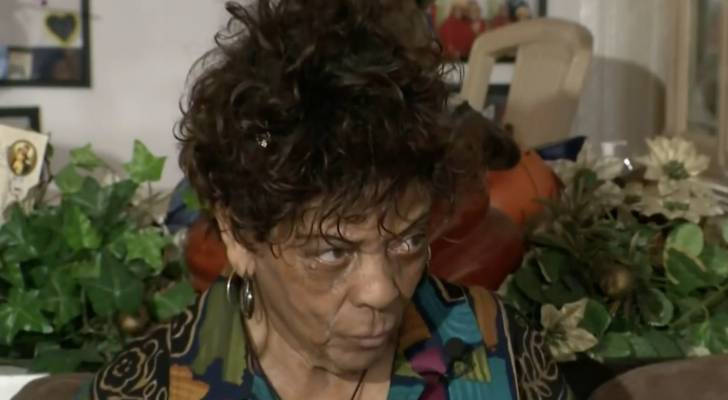A $100,000 counterfeit cash operation was blown open after a suspect purchased a drone on Facebook Marketplace and led Michigan State Police right to their doorstep.
Lieutenant Rene Gonzalez of the Brighton post told WXYZ News that the investigation began with a victim who listed a drone for $800 online. When the buyer arrived at her home in late March and paid in cash, everything at first seemed normal.
Don’t miss
- I’m 49 years old and have nothing saved for retirement — what should I do? Don’t panic. Here are 6 of the easiest ways you can catch up (and fast)
- Robert Kiyosaki warns of a ‘Greater Depression’ coming to the US — with millions of Americans going poor. But he says these 2 ‘easy-money’ assets will bring in ‘great wealth’. How to get in now
- Gain potential quarterly income through this $1B private real estate fund — even if you’re not a millionaire. Here’s how to get started with as little as $10
“They met up at the victim’s residence,” Gonzalez said. “The transaction of the cash was completed, and the property was turned over to the suspect. The victim went back in the home and realized that the money that she was given was counterfeit. So, that’s when police were contacted.”
Suspect linked to separate counterfeit investigations
Police later identified the suspect and obtained a search warrant for a home in Brighton Township. On May 23, 2025, police recovered approximately $100,000 in fake cash as well as a laptop and multiple cell phones believed to be tied to the alleged counterfeiting scheme.
Other law enforcement agencies in Livingston and Oakland counties are reportedly investigating similar cases involving the same suspect, raising concerns that this may be part of a broader operation.
While the area is quiet — no more than a handful of houses line that part of the neighborhood, according to one resident — the volume of counterfeit money discovered is no small matter.
According to the Federal Reserve, around $30 million in counterfeit bills — or roughly 1 in every 40,000 bills — are estimated to be in circulation throughout the country at any given time. That’s a notable improvement from 2006, when the estimate was closer to 1 in every 10,000.
The drop is likely due to enhanced anti-counterfeiting measures in U.S. currency. However, scammers continue to find ways to exploit cash-based transactions, especially peer-to-peer sales on platforms such as Facebook Marketplace, Craigslist or OfferUp.
Read more: Want an extra $1,300,000 when you retire? Dave Ramsey says this 7-step plan ‘works every single time’ to kill debt, get rich in America — and that ‘anyone’ can do it
How to protect yourself from counterfeit cash
Gonzalez said these kinds of scams are surprisingly common and offered several practical tips for anyone doing in-person cash transactions:
- Use a counterfeit detection pen: These pens, which are widely available online and in office supply stores, leave a gold or yellow mark on real bills and a dark mark on fakes.
- Check the feel of the cash: Real currency has a distinct texture and raised ink, especially on the numbers and portrait.
- Look for a security thread: U.S. bills have a thin embedded strip that glows under UV light and identifies the bill’s denomination.
- Check for watermarks: Most bills have a watermark of the portrait that is visible when held up to light. This can help you spot fake bills.
- Verify serial numbers: Counterfeiters often print the same serial number across multiple bills. Double-check for duplicates.
The Secret Service also offers a detailed guide on how to spot counterfeit bills through its Know Your Money resource. It outlines the difference between denominations and security features, providing a list of what to look for on bills printed before the anti-counterfeiting measures came into effect in 2004.
If you shop on Facebook Marketplace, Gonzalez says it’s essential to be careful. “There’s a lot of scammers out there, and Facebook is just another avenue for them to work off of.”
To stay safe when selling online, consider meeting in a public, well-lit area — ideally at a designated police department transaction zone. Always inspect bills before handing over your item, and avoid accepting large amounts of cash that might make you a target for counterfeiters or thieves.
But above all, listen to your gut. If something in the buyer’s language or behavior feels off, don’t agree to meet.
What to read next
- JPMorgan sees gold soaring to $6,000/ounce — use this 1 simple IRA trick to lock in those potential shiny gains (before it’s too late)
- This is how American car dealers use the ‘4-square method’ to make big profits off you — and how you can ensure you pay a fair price for all your vehicle costs
- Here are 5 ‘must have’ items that Americans (almost) always overpay for — and very quickly regret. How many are hurting you?
- How much cash do you plan to keep on hand after you retire? Here are 3 of the biggest reasons you’ll need a substantial stash of savings in retirement
Like what you read? Join 200,000+ readers and get the best of Moneywise straight to your inbox every week. Subscribe for free.
This article provides information only and should not be construed as advice. It is provided without warranty of any kind.


